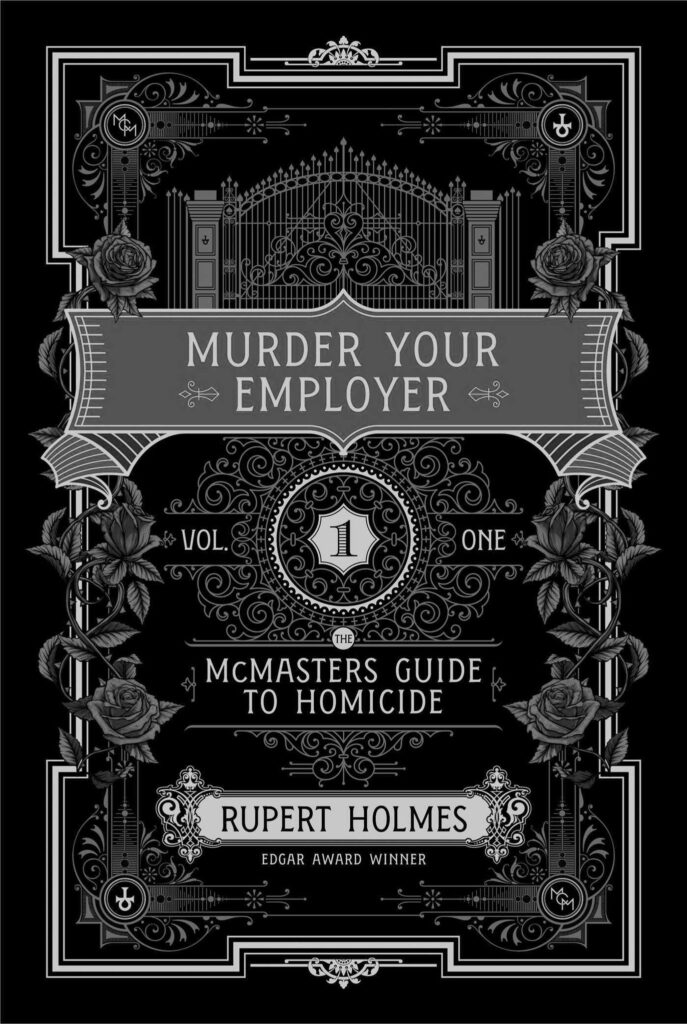
Our Take: 4/5 Stars
Rupert Holmes, a composer and artist, is widely known for his famous “if you like piña coladas, and getting caught in the rain …” However, something a lot of people are not aware of is that he is a renowned author as well. Published only last month, “Murder Your Employer: The McMasters Guide to Homicide” has been on the New York Times Bestsellers list for weeks. The story is captivating, witty and absurd — three things everyone loves in a good mystery novel.
The novel follows the story of three individuals from different parts of the world who all have one thing in common: hating their employer. Each individual faces great personal tragedy through blackmail, bribery and general nastiness. Each has something lorded over their head and is determined to reclaim their life. You will find yourself sympathizing with each and every character.
In comes McMasters, a completely secluded school where students learn to “delete” their person of choice in order to make the world a better place. Full of euphemisms, the book follows three students (Cliff Iverson, Gemma Lindley and Dulcie Mown) through every class at the academy, from “Alibis” to “Poisons and Panaceas.”
It is unusual to follow the “deletist” through the book; normally, we follow the detective. It is even more unusual to follow a book that wholeheartedly justifies the deletion, claiming it is for the better of the world. In fact, the four main principles of McMasters are as follows. One, the murder must be necessary. Two, the target must have been given every last chance to redeem themselves. Three, innocents must not suffer from this deletion. Four, lives must be improved for the better.
In the real world, such extreme measures must not be taken (please do not murder your employers!). Another interesting take away from an otherwise lighthearted book is the derision of power plays. Holmes does an incredible job of subtly displaying how often those in positions of power abuse that power to a dangerous level. Mown refuses her employer’s advances and is shunned to C-list movies after being an A-list actor for years. Iverson and his friend show his boss malfunctions in the aircrafts that were about to be distributed to the government — malfunctions that could potentially lead to the demise of many passengers. In return, he is accused of stealing government documents, blacklisted by his entire industry and forced to deal with the murder of his friend. Lindley is blackmailed into personal servitude by her ex-coworker, lest her horrifying secrets be divulged to the public.
Bosses allow personal bias to influence their hiring decisions; CEOs lord the promise of a promotion to a single mother desperately in need of money — as long as she stays quiet about illegal trades. Every department and industry has somebody in power who takes liberties with
their position to hurt others.
Once again, nowhere is Holmes genuinely advocating for “deletion,” but he is advocating for a united stand. One of the ways this can be done is through social media. Social media has had its ups and downs, but one undoubtedly positive aspect is the community being built. For every cruel Twitter troll, there comes a story of someone who was racially profiled, unfairly fired or discriminated against and has found justice served because of the relentless advocacy of the public. We are seeing more and more people held accountable for their actions, like those in huge positions of power, and with each voice taking a stand, another comes along to share their story as well.
Every reader should pick up a copy of “Murder Your Employer: The McMasters Guide to Homicide” from their local library and enjoy the comical yet genius wordplay that appears in every sentence.
Also, most importantly, remember the real message is not to delete your employer, but to take a stand instead.
